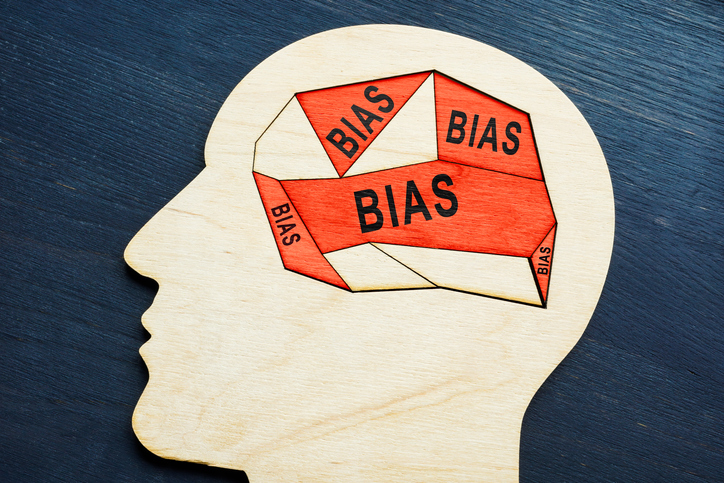The states of California, Maryland, Michigan Minnesota, and Washington now require all licensed public health professionals to undergo “Implicit Bias Training”. Gabriela Eyal, Ph.D., is a licensed clinical psychologist in Michigan who has practiced for decades in the United States and abroad and conducted psychological evaluations of more than 1,000 children through Child Protective Services and the Head Start program. Eyal recently finished her first three-hour “unconscious bias” training.
Health Care News: Where do you sign up for “Implicit Bias Training,” how much time does it take, and what is the cost?
Eyal: Unlike most continuing education courses, unconscious bias training must go through a specific accreditation process. I had a choice of four or five training programs. I chose the one through the Michigan Psychological Association, mostly because I was familiar with that organization, it was reputable, and I trusted it. Beyond the initial course, we are required to receive one hour of training each year while we hold a license, and the cost is about $25. My training was offered in an online course module.
Health Care News: So, this is new to you. What did you think when you began the training?
Eyal: I couldn’t believe my eyes. One of the things this teaches is that children as young as three years old have implicit bias. I have evaluated more than one thousand children at this age in my career, and I have never seen this [bias] toward other toddlers. … It is ridiculous to assume you know what goes on in the mind of a three-year-old. They don’t have the verbal skills to express bias. You can’t have a discussion with them. And what worries me is professionals who are not discerning will believe this.
Health Care News: How do they describe unconscious bias among adults?
Eyal: They presented a survey from the Pew Research Center, a reputable organization, that showed 50 percent of white people have a bias toward other whites and 45 percent of African Americans have a bias toward other African Americans. And I wondered, why are they making us take this course when their own survey shows about half of those surveyed have no bias. Furthermore, we all have an inborn tendency to gravitate to the familiar, but it doesn’t mean dislike or negative bias [against others]. Maybe 20 percent of people have a real, conscious bias but this is not the majority.
Furthermore, “implicit bias,” isn’t just about race, according to this training. They have a long list of victims. Implicit bias can exist against obesity, age, or gender, and the list is so long no one can escape it. Basically, it suggests you’re biased no matter what. You’re guilty before opening your mouth.
Health Care News: In the field of mental health, there is so much demand for help. People who may be a threat to themselves or others roam the streets. There is such an uptick in violence, especially after two years of lockdowns and forced masking. How does this affect you, that your time is being taken to address a problem that isn’t well-documented?
Eyal: The demand for help is overwhelming. I am unable to take on new clients. There is such a shortage of mental health services. These courses waste our time, but that is not the biggest objection. Instead of supporting us so we give what we can to our clients, these courses try to make you feel guilty and doubt yourself.
Suicide rates are up. Over 100,000 people are dying each year from drug overdoses, and “implicit bias” is the focus? This makes no sense. I’ve been around long enough that I’m not persuaded by this. But I could see how this could easily erode the confidence of someone new to the field. They might now doubt themselves or second-guess anything they say. The classes offer no opportunity for debate or chance to defend oneself.
Health Care News: How concerned are you that you could face additional liability given this emphasis on victimhood? Do you fear you could be accused of implicit bias, sued, or lose your license?
Eyal: It is one reason I tell younger professionals to avoid speaking out about their objections to this kind of forced training. They have too much at risk. Also, I was born in a Communist country. This is not new to me, and I feel better equipped to resist.
